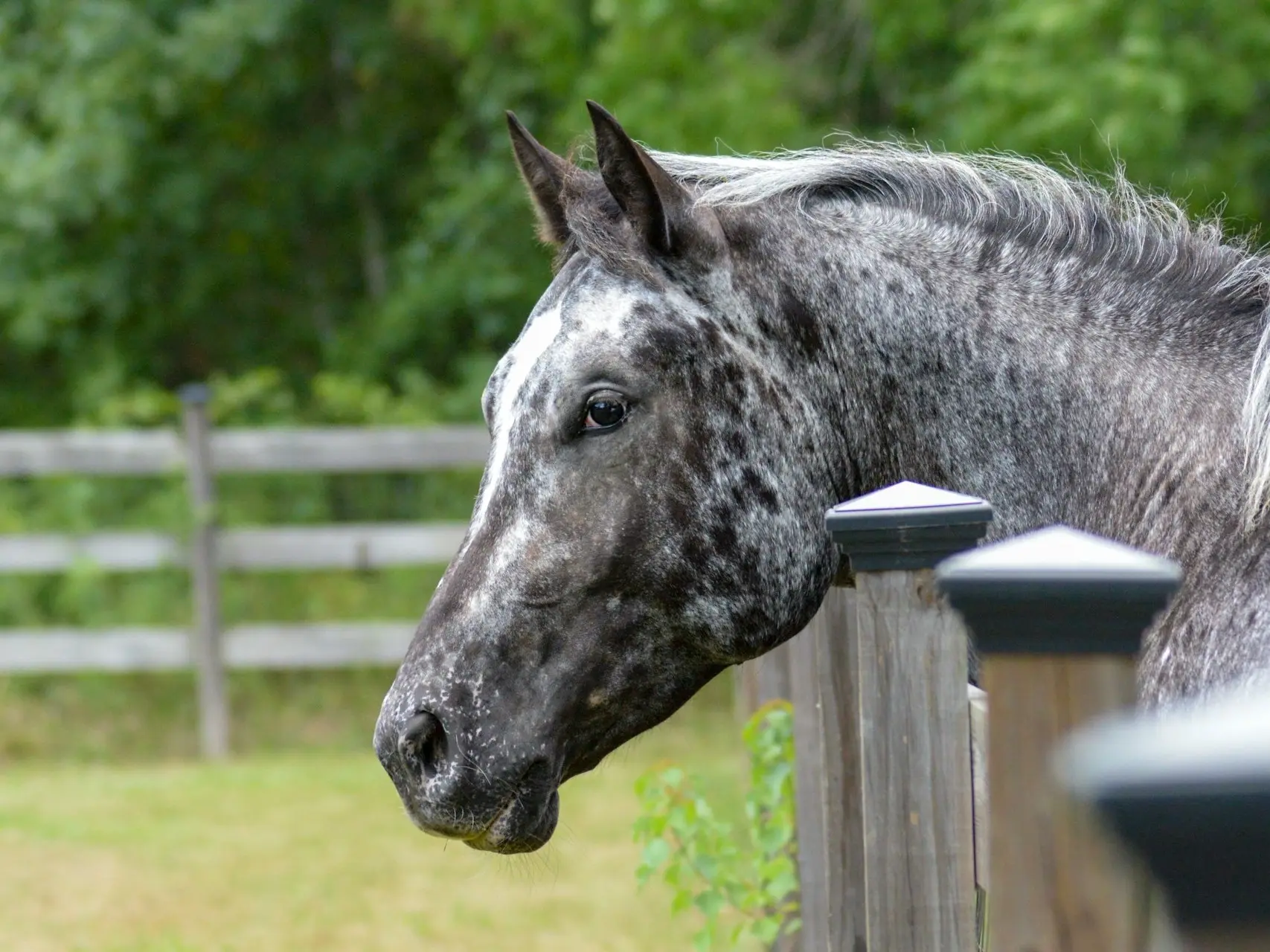
White color patterns are not linked to the color of the horse, they are a pattern applied on top of the base coat. The appaloosa patterns are expressed through the Leopard Complex and can appear on chestnut, black, bay and brown base coats.
Appaloosa White Pattern
The Leopard Complex creates an incredibly diverse number of pattern types and can be found across many breeds. While they are associated with Native Americans, spotted animals have been documented in history for thousands of years. The appy white pattern can occur on any color and varies a great deal in expression, some animals can display more than one pattern.
Appaloosa Characteristics
While the patterns vary widely from animal to animal, there are a few characteristics that remain constant across all animals affected by this white pattern.
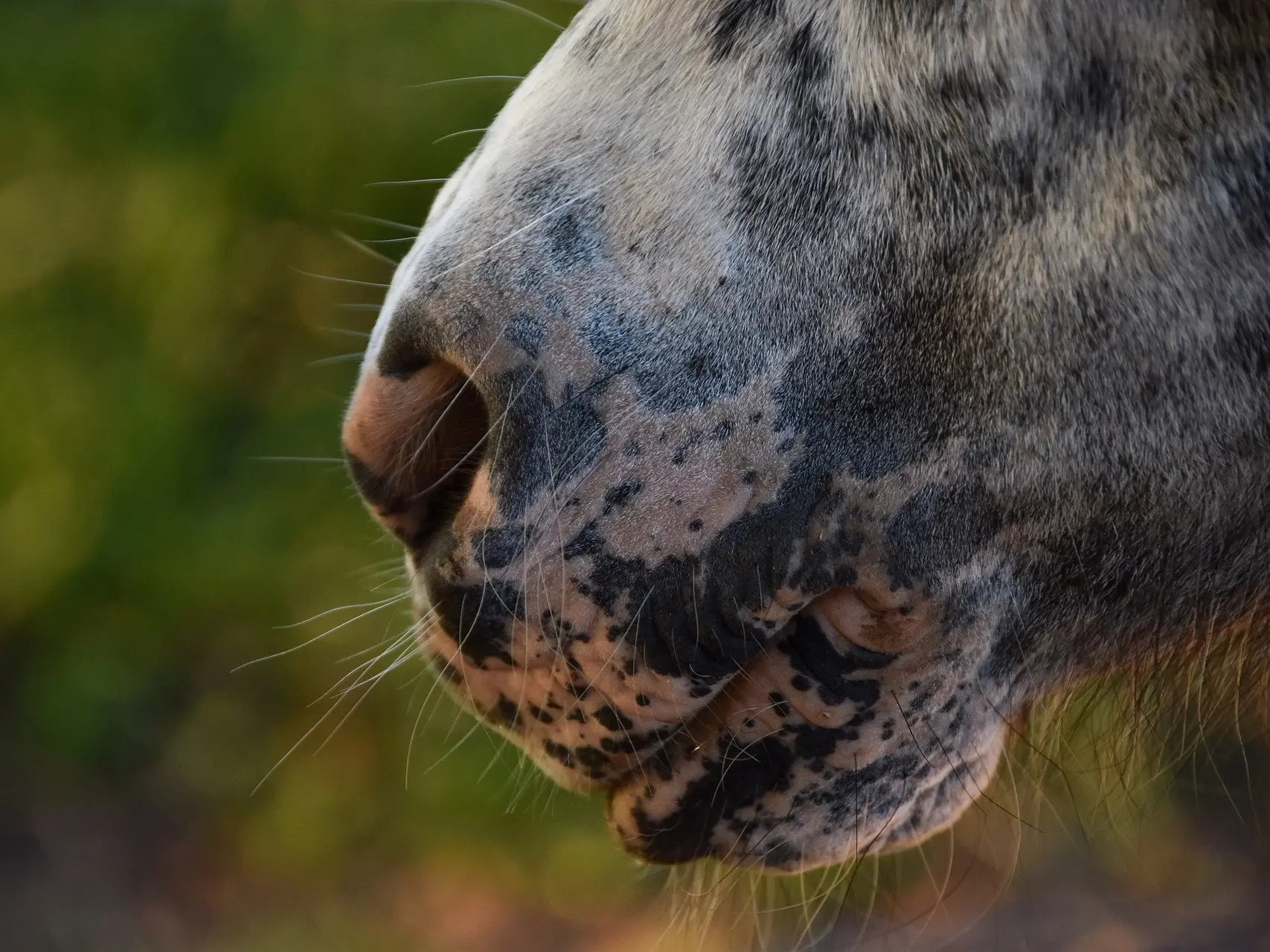 Mottled skin
Mottled skinAppaloosa animals will almost always have mottling or small dots around their mucus membranes (mouth, eyes, etc).
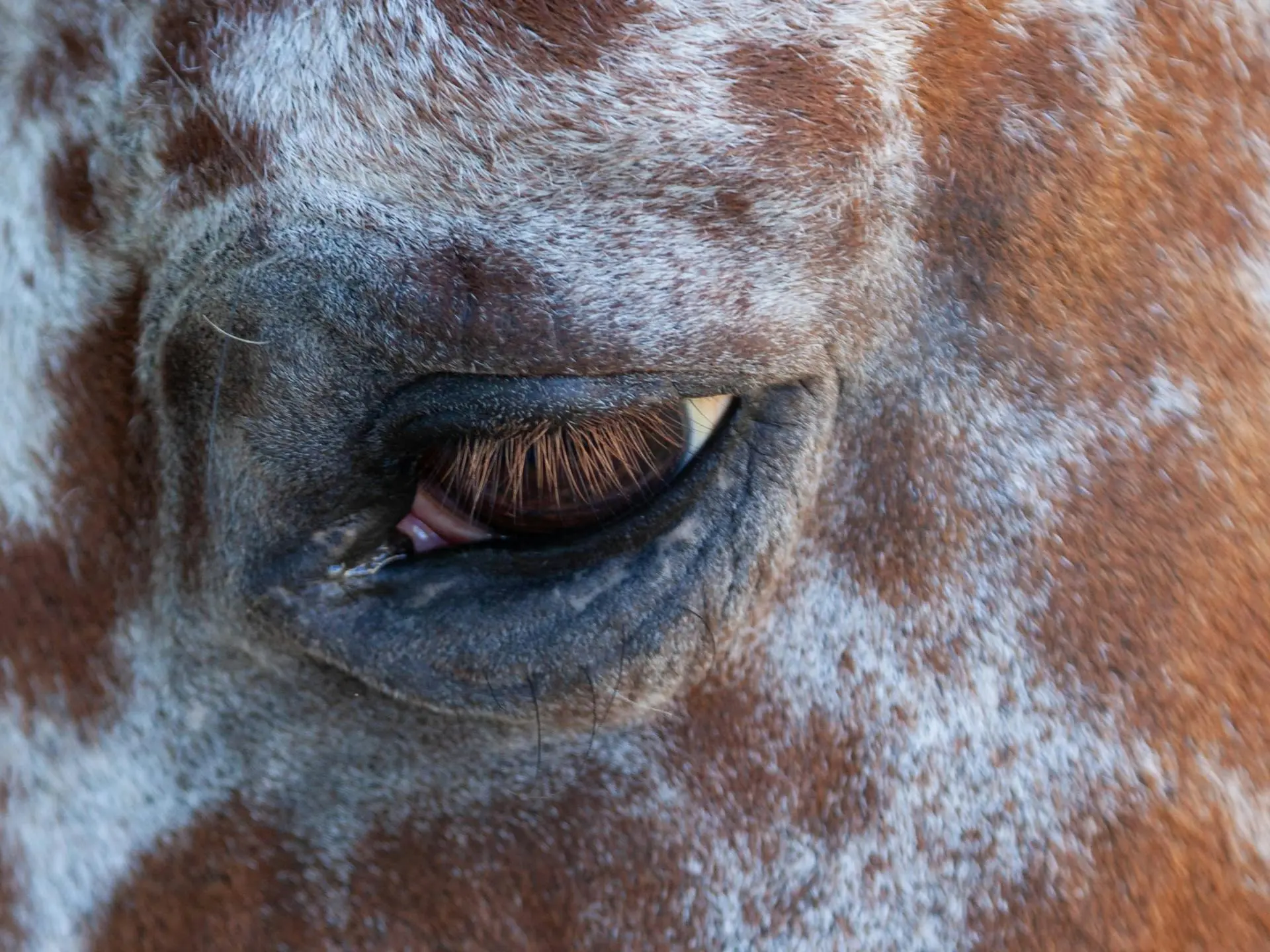 White Sclera
White ScleraAlso called walleyed, often appaloosa animals will display a white sclera of the eye. Not all appaloosas will show this trait.
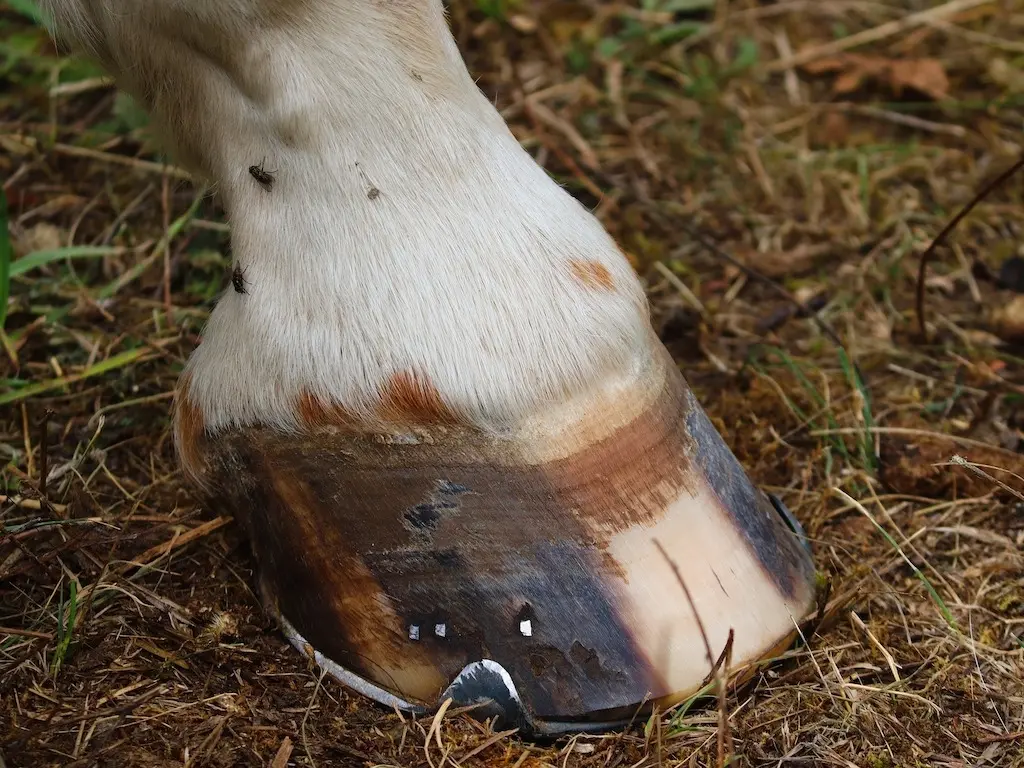 Striped hooves
Striped hoovesNot all hooves will display the striping and it does not matter what color the legs are, they can all be striped.
Appaloosa Patterns
There are an immeasurable number of patterns in the appaloosa spectrum and they can be mixed and matched.
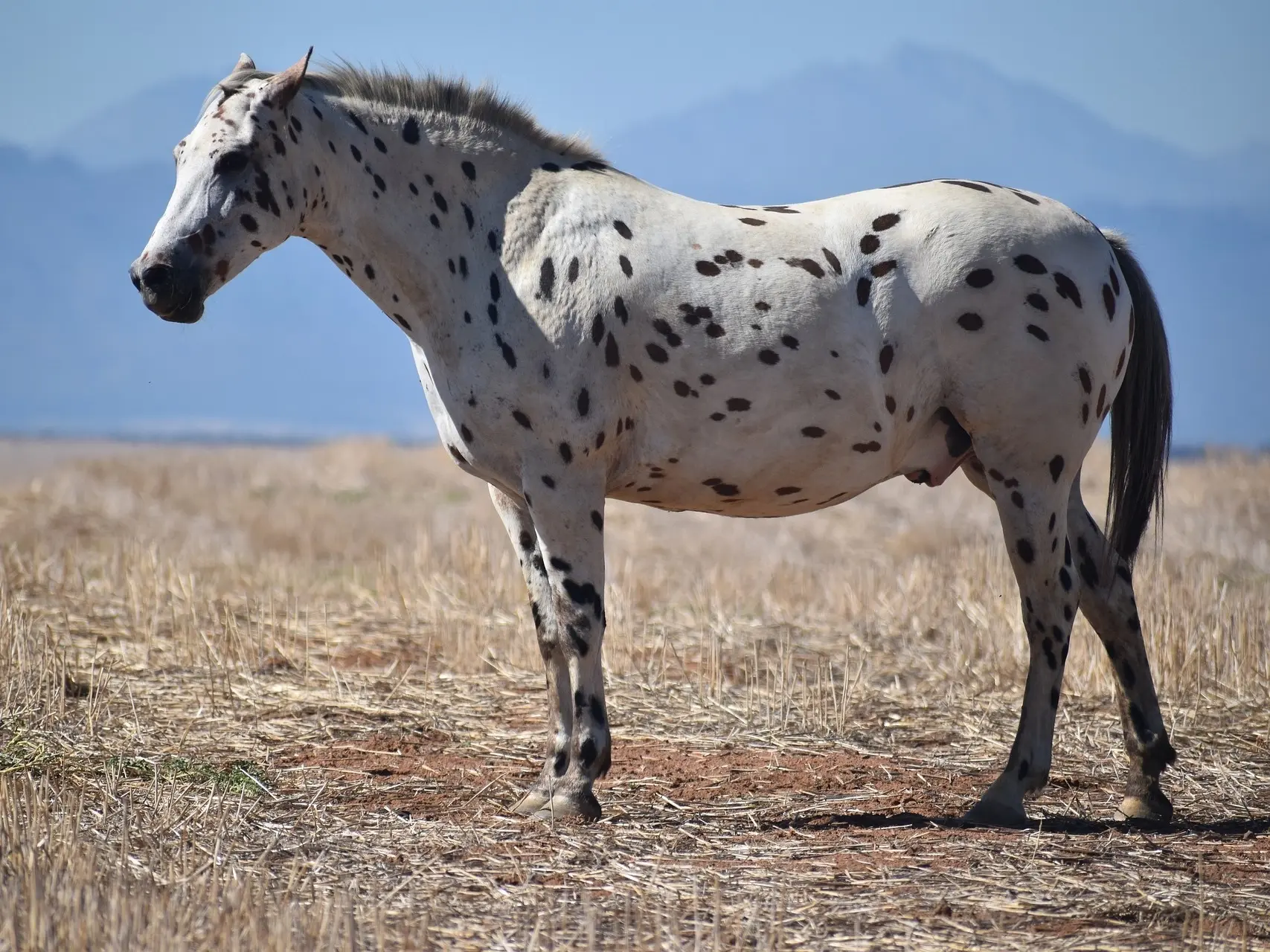 Leopard
LeopardWhite with dark base colored spots distributed throughout the coat – similar to dalmations. Spots can be concentrated on the head and legs.
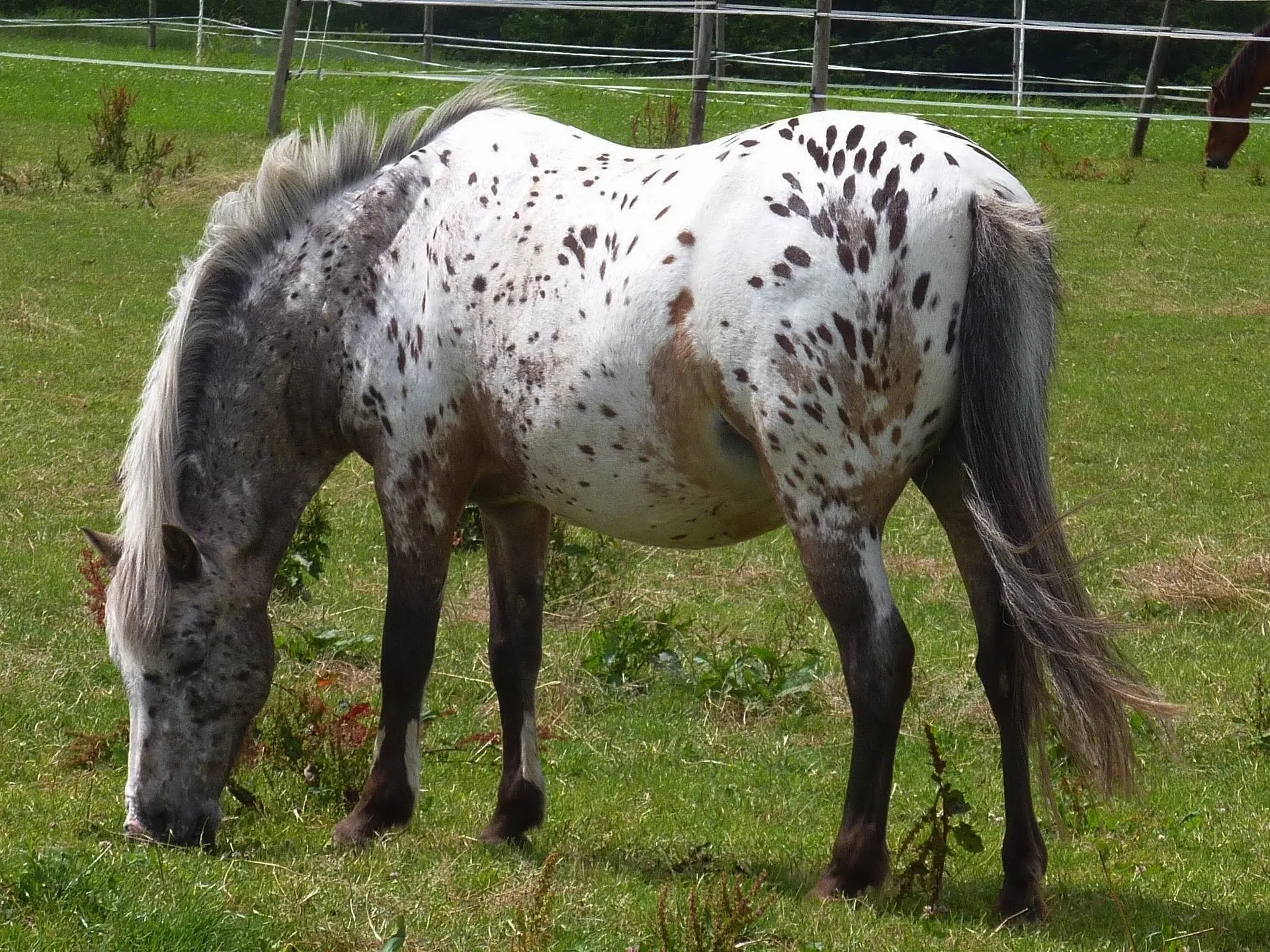 Near-Leopard
Near-LeopardWhen the white patterning stops around the shoulders, while the head and neck remain colored, with colored spots in the white field.
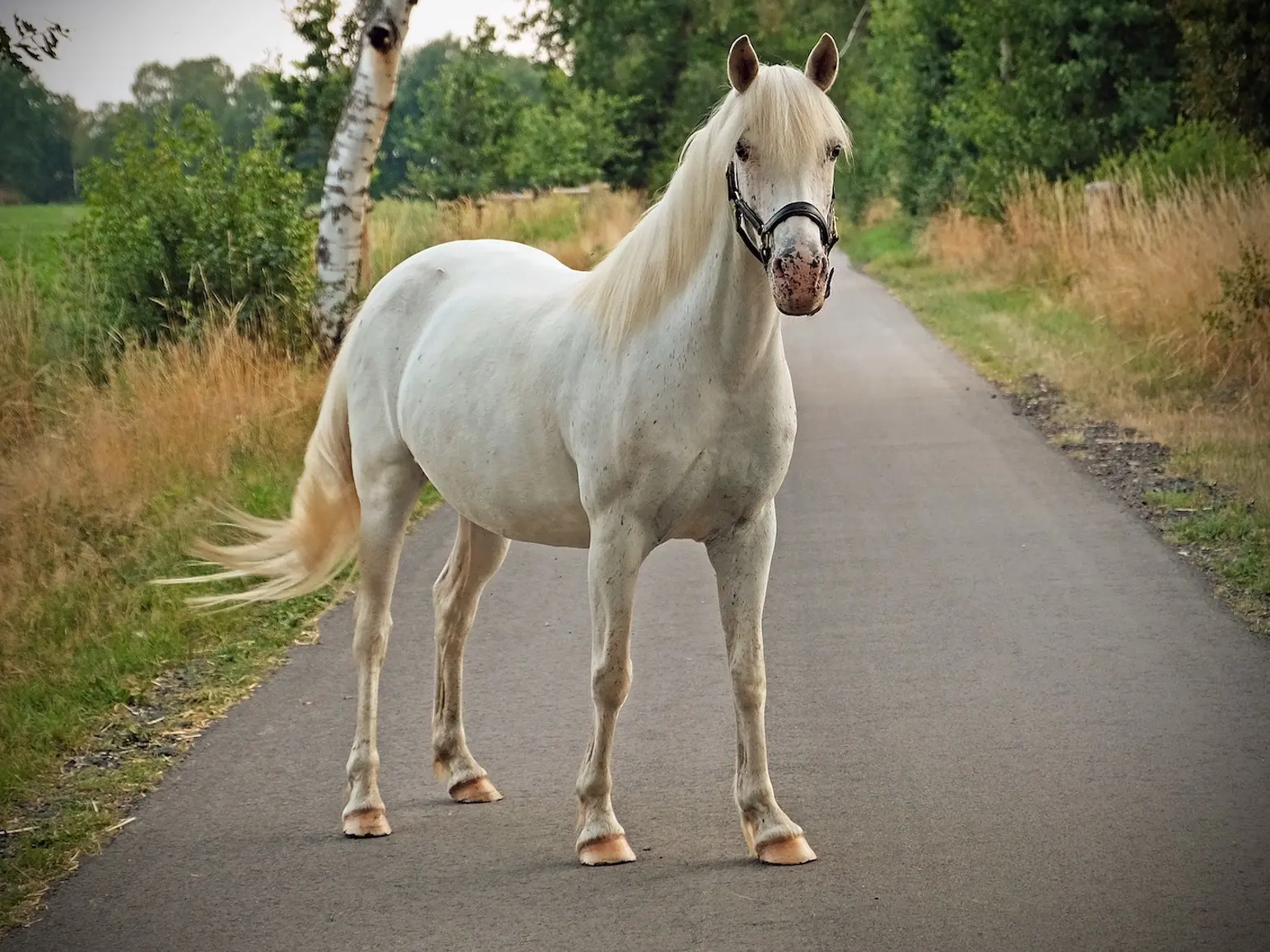 Few-Spot Leopard
Few-Spot LeopardThe maximum expression of the Leopard Complex, creating an animal that is pure white with a few colored spots in their coat.
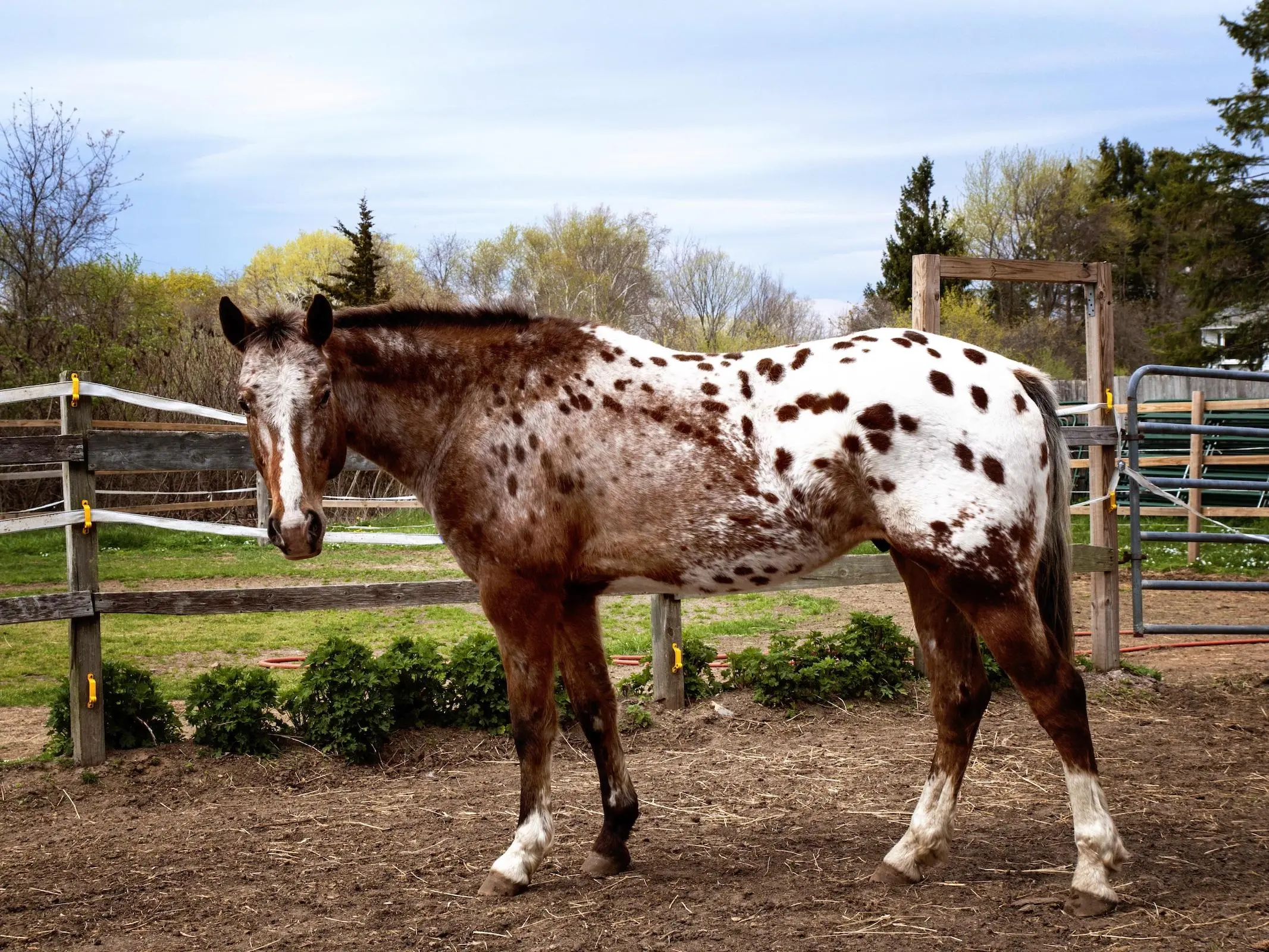 Blanket
BlanketBlanket appaloosas have a blanket of white draped across their hindquarters. Inside the blanket there must be spots of the base color.
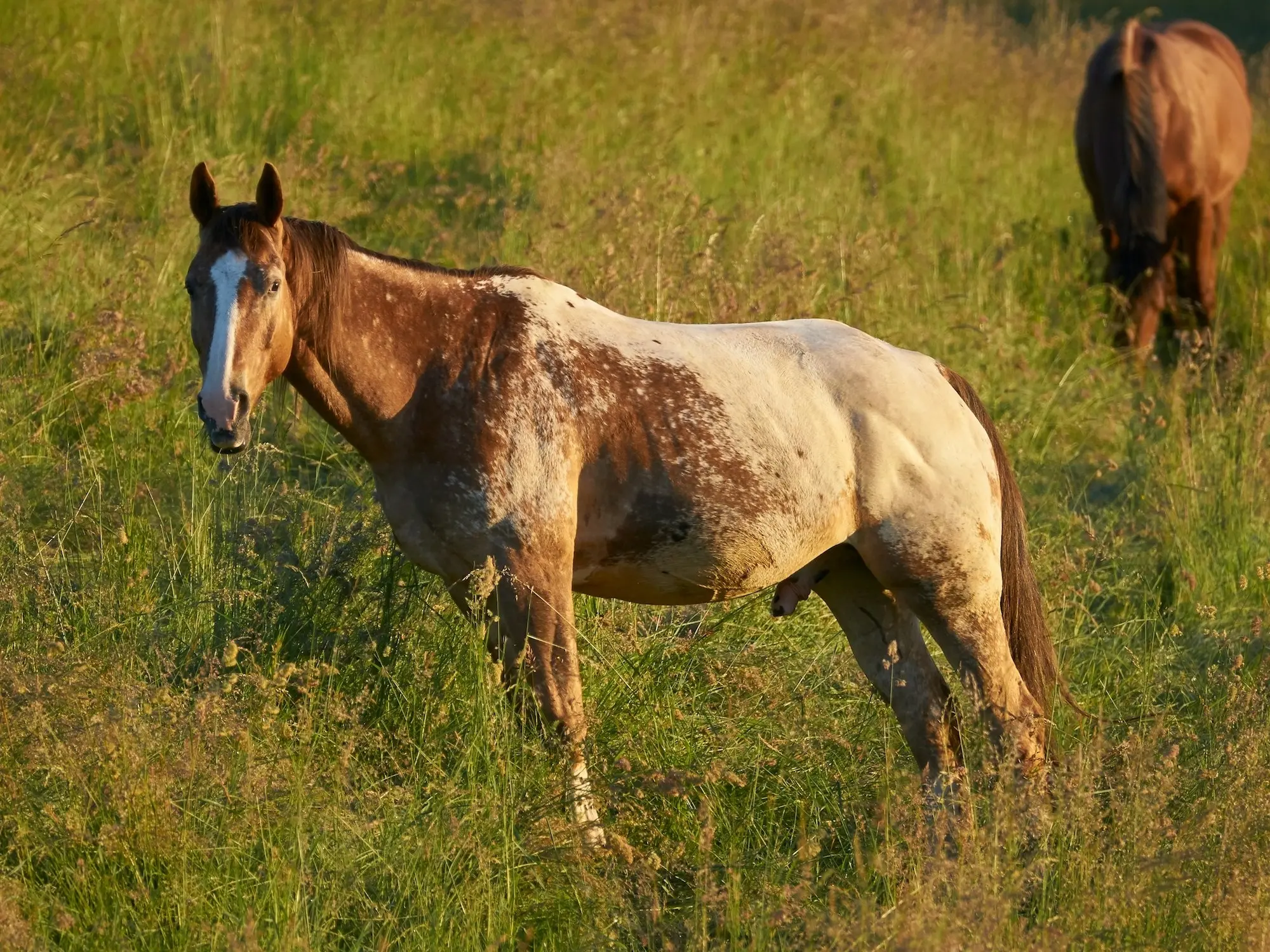 Snowcap
SnowcapSnowcap appaloosas have a blanket of pure white draped across their hindquarters, there cannot be any spots inside the blanket.
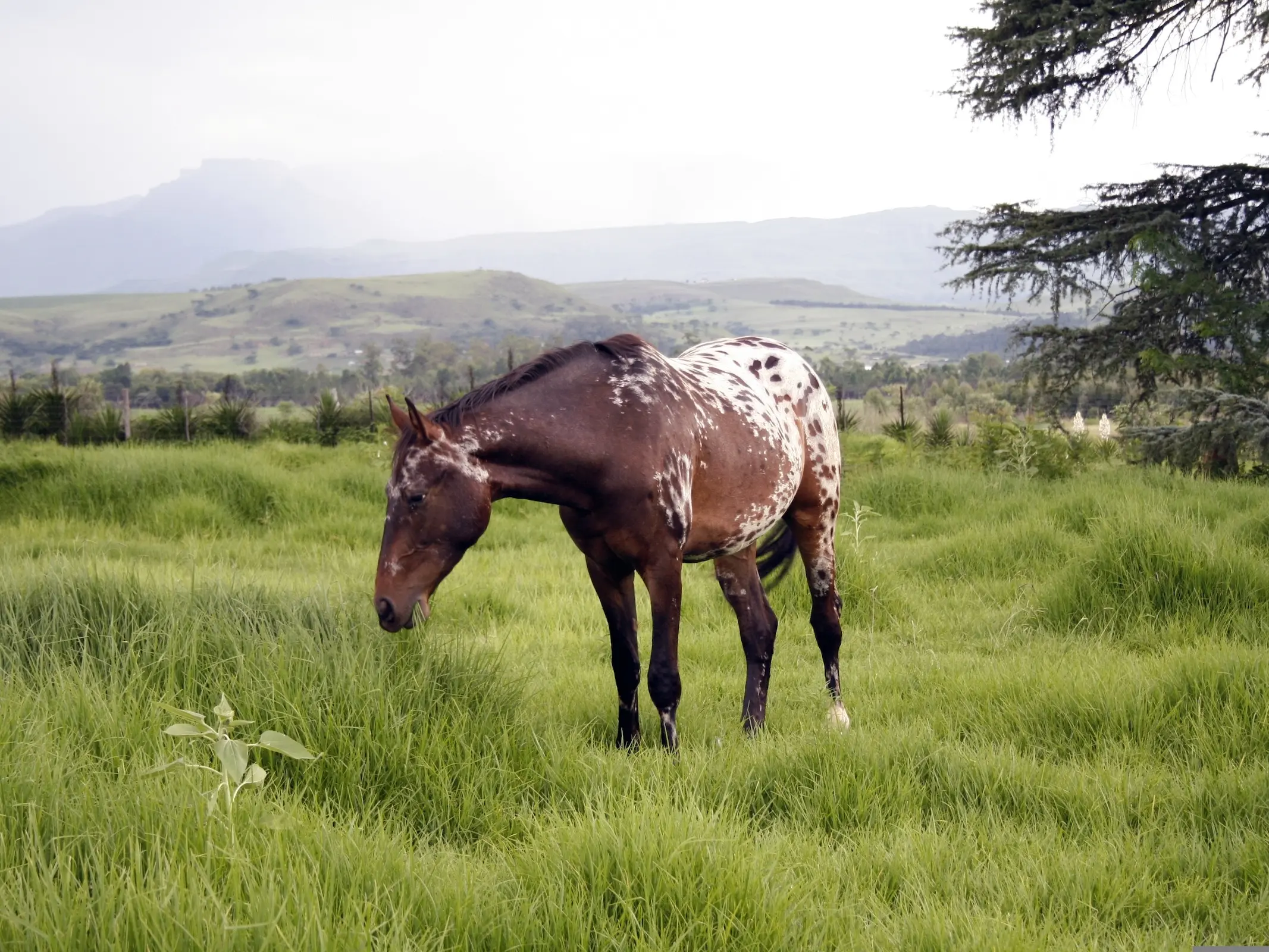 Marble/Varnish
Marble/VarnishAlso mistaken for roaning, marble appaloosas have a larger overlapping of white in their patterns, giving them a marbled look.
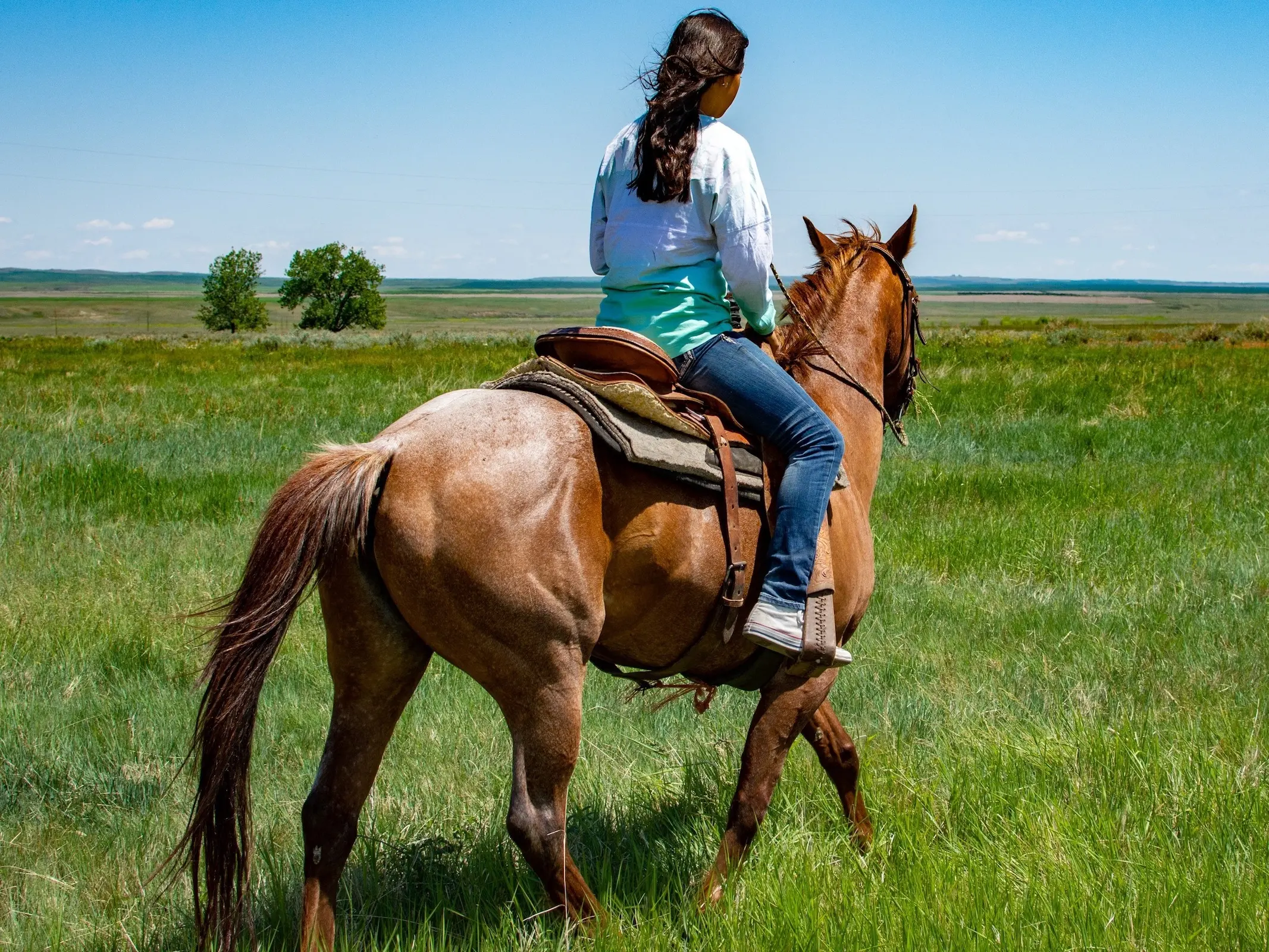 Frost
FrostEasily mistaken for roaning, frost white patterning generally occurs along the topline and hips. Will not display dark points.
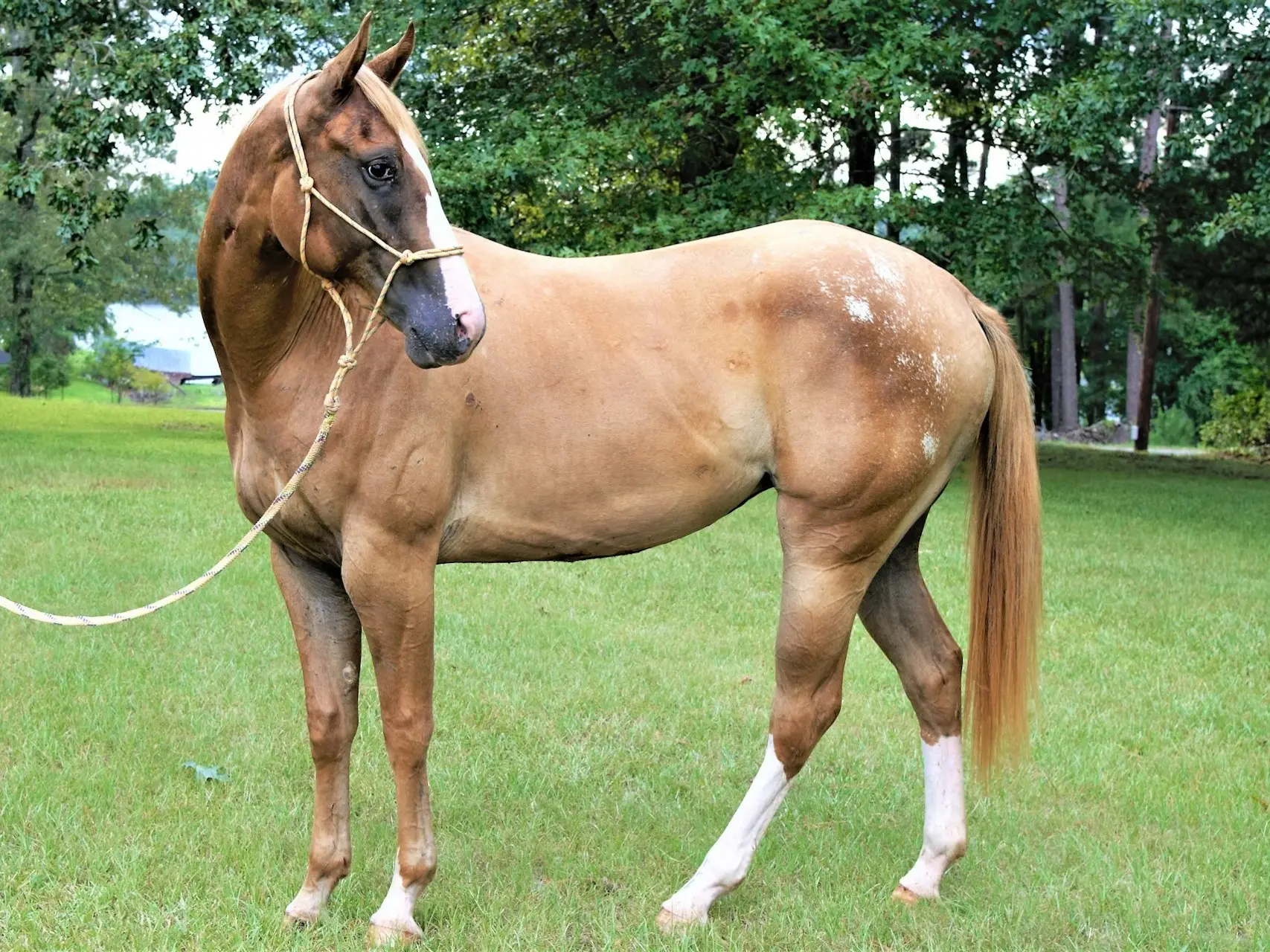 Snowflake
SnowflakeSnowflake animals tend to be mostly their base color with small flecks or spots of white. They can change and move as the horse ages.
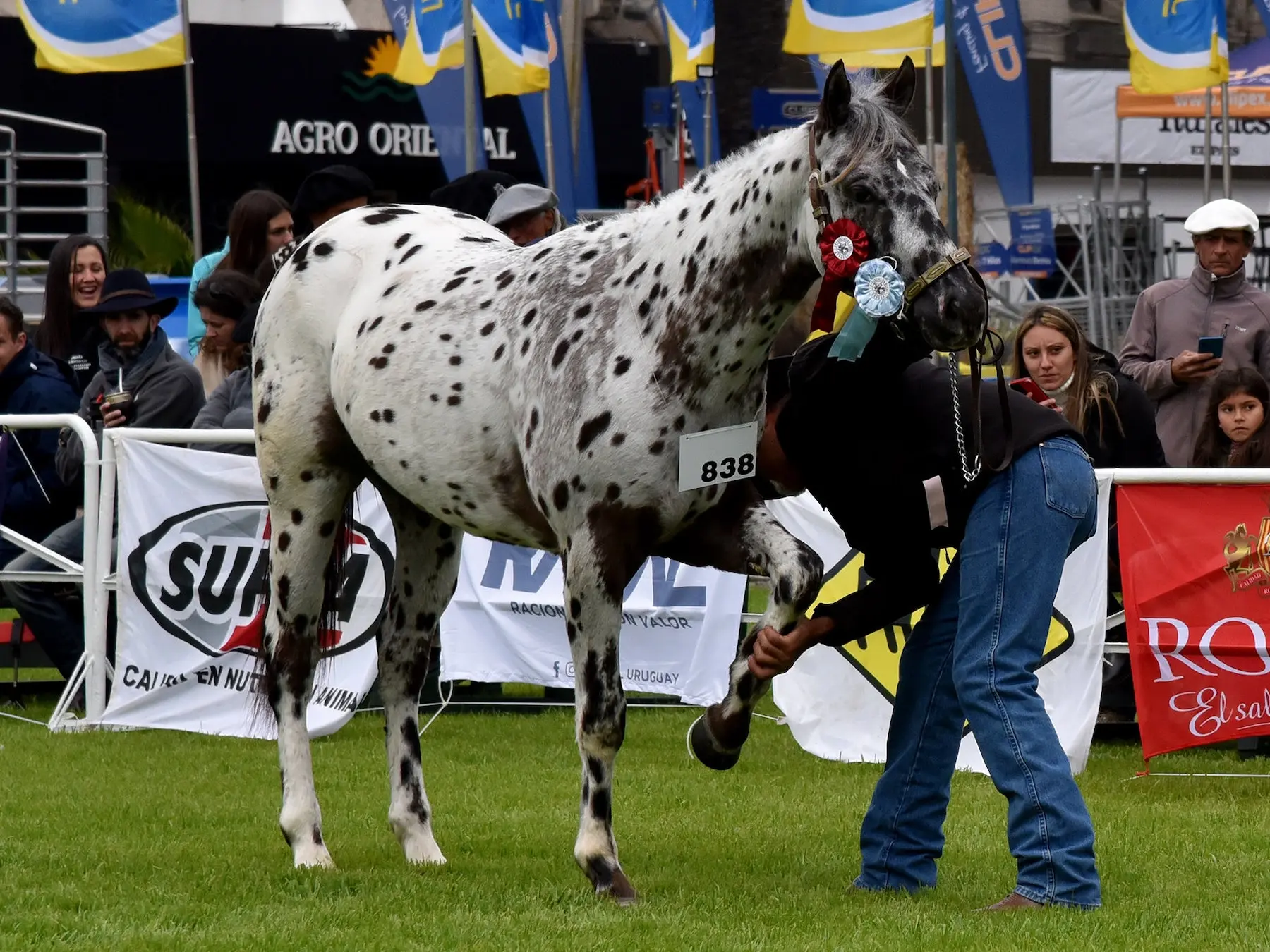 Peacock
PeacockProbably a type of marble, peacock are spots are of base color, surrounded by white, against the base coat. Creating striking patterns.
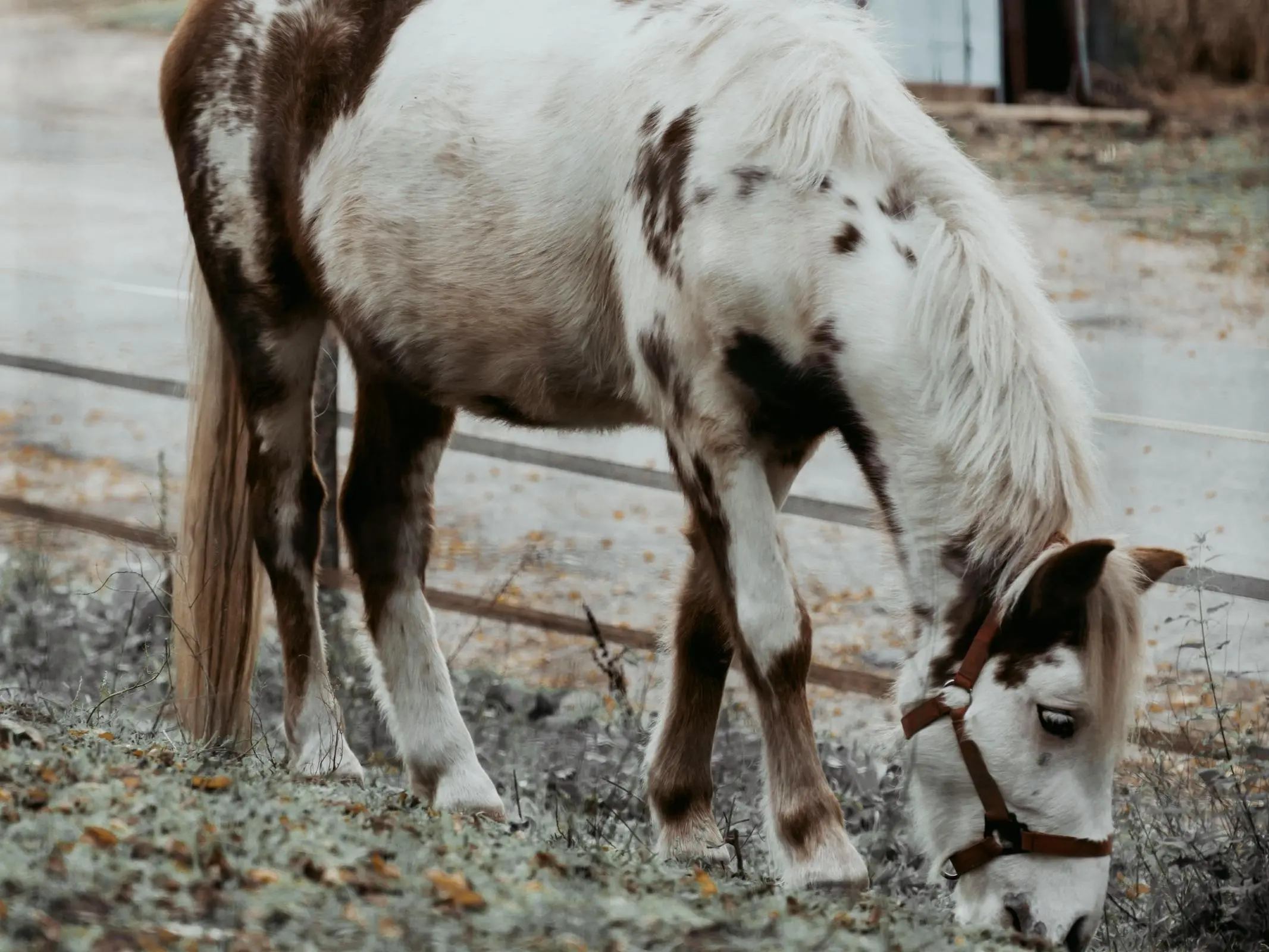 Pintaloosa
PintaloosaThe result of a pinto white pattern and an leopard white pattern mixed together. This combination is rather rare and difficult to breed for.
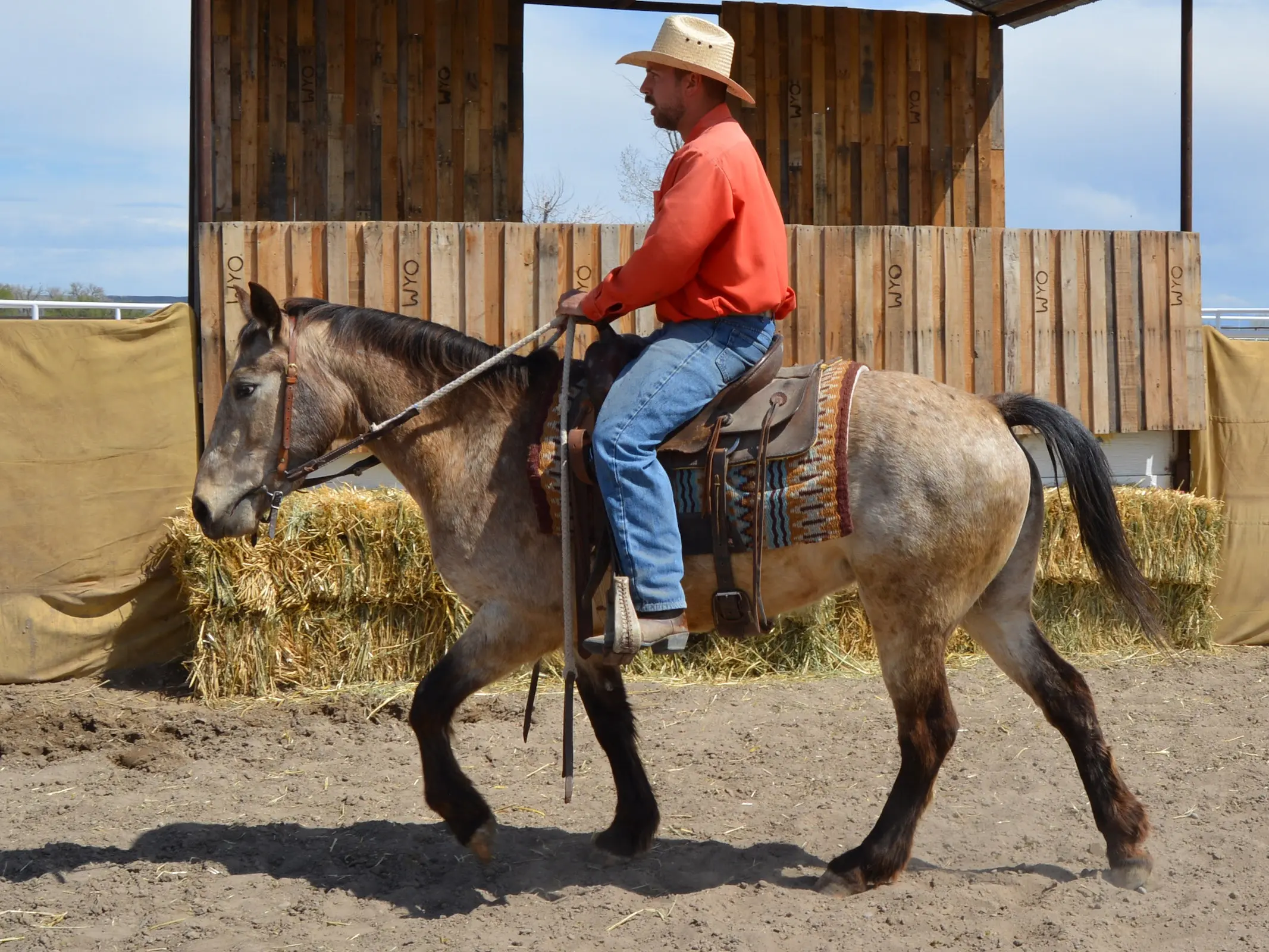 Rat Tail
Rat Tail